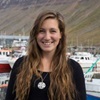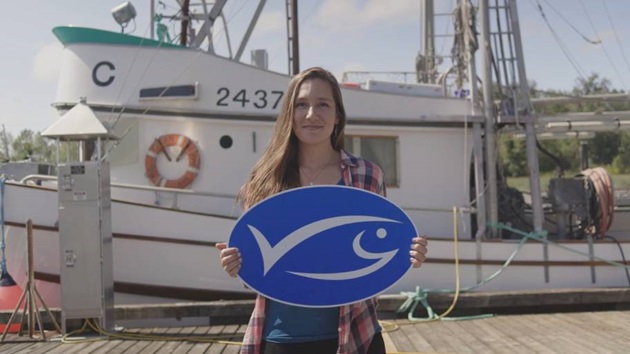Sustainably sourced seafood protects the health of our ocean and enables us to feed billions.
As a marine conservationist, fish harvester, and underwater photographer I can truly say that very few people get to see our world like I do. Just about every day, I get to visit the most beautiful place on the planet—our marine ecosystem.
The ocean’s beauty is undeniable. Imagine being immersed in emerald waters as they’re pierced by sun rays, or floating through golden kelp forests as an abundance of marine life swims by. This incredible sight has been my office for the past 8 years, and it’s what’s driven my extensive work in the marine industry.
Since my first job as a deckhand on my family’s wooden fishing schooner in 2002, I started learning about the ocean and its potential to feed the world. The ocean is the world’s largest source of protein and can be a perpetually renewable resource if managed correctly.
Yet as my marine conservationist career progressed and I started attending the UN Committee on World Food Security as a youth fishing representative, I found seafood consistently being overlooked when discussing food security dynamics worldwide.
According to the UN State of Food Security and Nutrition in the World report (SOFI), over the last 4 years, the number of people in the world who suffer from hunger and food insecurity has increased to more than 820 million. Here at home, it is reported approximately 8.3% of Canadian households experience food insecurity. These numbers will only continue to rise as the global population is expected to increase to 9.7 billion by 2050.
Action on food security is needed, but food from our ocean continues to lack recognition as a viable solution to global food security planning and healthy eating.
As we strive to enhance food security it’s important we favor options that keep our planet in mind and consider the relative environmental impacts of food production. A practical solution to the food security problem should involve a balance between agriculture and sustainably sourced marine protein.
According to the World Resources Institute, wild capture fisheries with low fuel requirements boast some of the lowest carbon emissions of animal proteins. Contrast this with terrestrial livestock production, which occupies around 50% of the planet’s habitable land, with nearly 80% of that land used to raise livestock. Studies have shown this production requires large amounts of fresh water and has more emissions than many seafood harvesting methods. What’s more, seafood is highly nutritious and already more than 2.6 billion people depend on it as their primary source of protein. But what about people who cannot spend their lives around the sea as I do, how can they make sure they are choosing to support the right fisheries?
You can start by looking for global, science-based certifications when shopping for fish and seafood, such as the MSC blue fish label that indicates certified wild, sustainable, and traceable seafood or the ASC label that indicates certified responsibly farmed seafood.
There is still room to improve the state of the global fishing industry although we have come a long way in the last 2 decades, which is what the MSC and its partners are tirelessly working towards. Gradually, many fisheries are adopting best practices, becoming MSC certified and informing consumers everywhere by displaying the MSC blue fish label. These fisheries, and the ones I work in, are the world’s most recognized standard for seafood sustainability and have volunteered to present their practices in a transparent assessment so that the world can see they meet the highest standard for fishery sustainability.
Finding a solution to feed a rapidly growing population over the next 30 years is not an easy task, especially if we put all our eggs in one basket. This is why it’s crucial that we integrate sustainably sourced fish and seafood into the global food security conversation. And, as one of the 200 million people who depend on our ocean for their livelihoods, I believe it’s important that we consider the employment and social potential of strong ocean stewardship.
The ocean is the center of my world. I love visiting underwater environments to study and photograph fish without disturbing them. I also enjoy eating fish for dinner a few times a week. Some might see this as a contradiction but this is the power of conservation based on good ocean management: it allows us to effectively conserve, study and sustainably utilize our marine resources so that we can continue to enjoy healthy coastal ecosystems and at the same time employ families and provide all of us with healthy, delicious food well into the future.



